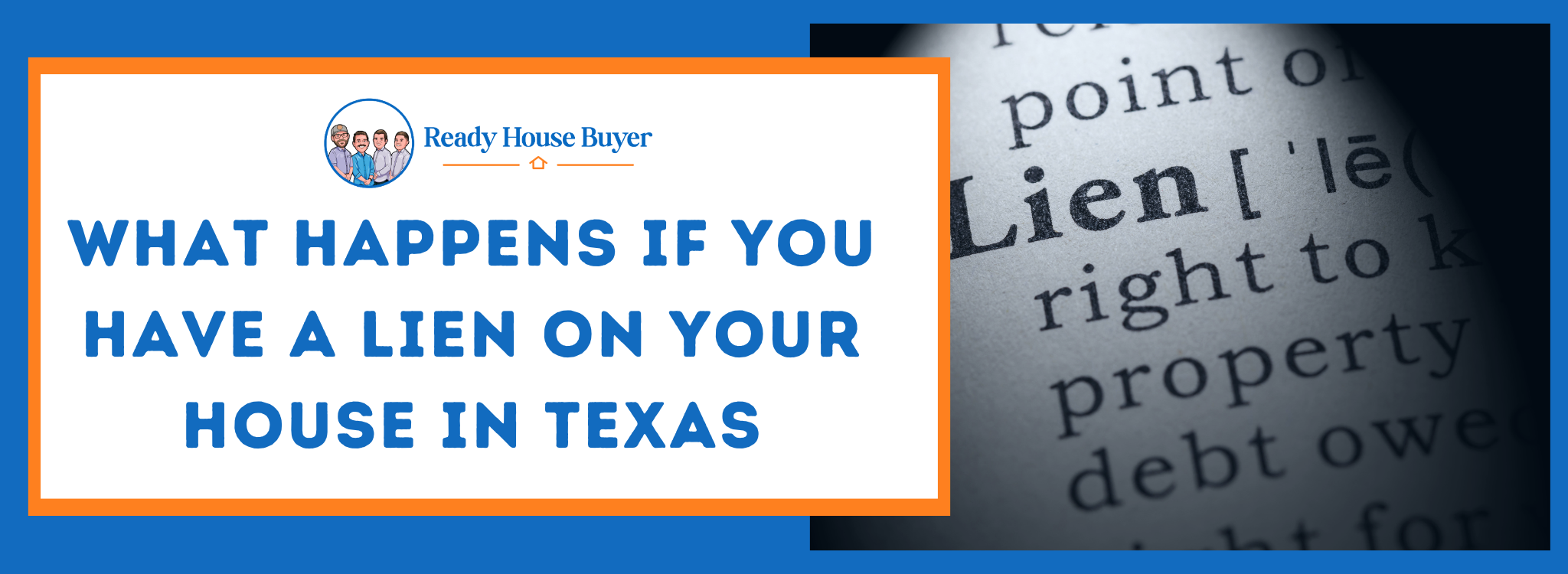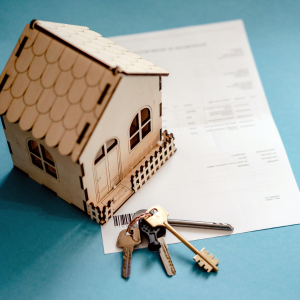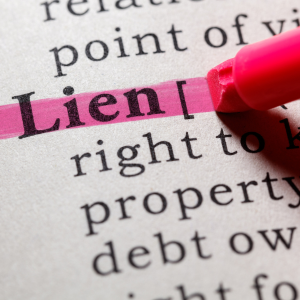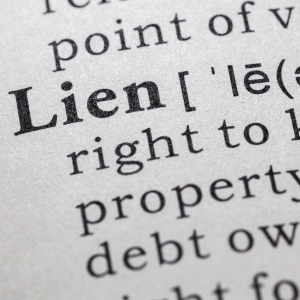
What Are Liens and How Can They Affect You?
A lien is a legal claim put on a property when the owner owes money. This claim makes sure debts are paid before selling the property. For property owners and homeowners, liens can cause trouble with real estate deals. If your property has a lien, it might be hard to refinance or sell your home. Property tax liens happen when taxes aren’t paid and are more critical than others.
Types of Liens You Should Know About

Liens can be different, and it’s important to know about them. There are two main types: voluntary liens and involuntary liens.
- Voluntary Liens: These are liens you agree to, like a mortgage.
- Involuntary Liens: These are put on without your consent, like a judgment lien for unpaid debts.
Common liens include:
- Judgment Lien: Comes from a court decision.
- Mechanics Lien: Placed by contractors for unpaid work.
- Tax Lien: Due to unpaid taxes.
- Real Estate Lien: Related to mortgage deals.
- Federal Tax Lien: Filed by the government for unpaid taxes.
These liens affect creditors and debtors, including alimony claims.
Who Can Place a Lien on Your Property in Texas?
In Texas, many can place a lien on your property. Creditors like lenders and courts are familiar sources. Contractors can file mechanics liens if not paid for their work. The government can impose tax liens, and homeowners associations may set liens for unpaid dues. Child support agencies also have the authority to file liens for missed payments. Knowing who can file a lien helps Texas homeowners stay informed.
The Impact of Liens on Homeownership
Liens can change real estate ownership. They might lower property value and impact home equity. If you want to refinance or get a mortgage, a lien can be a problem. In some cases, a lien can lead to foreclosure. Liens also hurt your credit, affecting how lenders see you. Knowing this helps keep homeownership smooth.
How to Identify If There’s a Lien on Your Property
As a property owner, knowing if there are liens on your property is important. Start by checking county records or doing a title search in public records. Many services offer a lien search for details. Legal notices might also tell you about a lien. For a complete check, an advanced search is best.
Steps to Check for Liens in Texas
To find liens in Texas, do these steps:

- Go to the county clerk’s office for records.
- Use online record databases for Texas real estate.
- Contact a title company for property title checks.
- Examine documents at the local law library.
Following these steps will help you find any liens quickly.
Common Signs That Indicate a Lien on Your Home
Watch for these signs to spot a lien on your home:
- Getting a legal notice.
- Mail from creditors about unpaid debts.
- Reminders of missed payments.
- Unpaid debts.
- Title problems, especially if selling.
- Late property taxes.
Seeing these signs early can solve problems before they grow.
What Legal Rights Do Property Owners Have Regarding Liens in Texas?
In Texas, you have certain legal rights regarding liens if you own property. A lien is when a creditor claims part of your property because you owe them money. Texas law says you must get a notice before a lien is put on your property. This notice will tell you about the debt and what might happen if you don’t pay it. You also have the right to dispute or talk with the lienholder, the person or company that filed the lien.
Can You Challenge or Contest a Lien?

Yes, you can challenge or contest a lien in Texas. If you think a lien is not fair or wrong, you can go to court to argue against it. You will need to present evidence and explain why the lien is incorrect. Knowing your statutory rights can help in these cases. Getting legal advice can help you understand the process better.
Understanding the Priority of Liens
The priority of liens tells us which creditors get paid first if a property is sold. The “first in time, first in the right” rule usually applies in Texas. This means the first lien filed is paid first. Mortgages often come before other debts because they are secured liens. Knowing the order of liens is good for understanding your financial responsibilities.
What Happens When You Want to Sell a House with a Lien?
Selling a house with a lien in Texas can be tricky, but it’s doable. You need to clear the lien to give the buyer a clear title. During escrow, the lienholder has to be paid from the sale, or another arrangement must be made. Understanding these legal steps is important for a smooth sale.
Selling a Home with an Existing Lien: What You Need to Know

Work with a title company if your home has a lien when selling. They check for liens and help resolve them before the sale is done. According to Texas property law, you may need to negotiate with the lienholder for a deal that lets the sale go through.
Potential Buyers and Their Concerns About Liens
Potential buyers often worry about liens because they can affect the title and value of the property. Liens could mean a credit risk, so buyers want to ensure no title issues. Doing due diligence helps buyers understand any problems before buying. Clearing any liens makes your property more appealing to buyers.
How Can You Remove a Lien from Your Property?
A lien on your property can seem scary, but learning how to remove it helps you get a clear title. A lien is a legal claim on your property by a creditor because of unpaid debt. Here’s how property owners can remove a lien:
- Contact the Creditor: Talk to the creditor. Find out exactly what debt you owe so you understand the lien.
- Negotiate a Settlement: Creditors often agree to negotiate. You might find a deal or payment plan to settle the debt more easily.
- Obtain a Lien Release: After settling the debt, ensure you get a lien release. This document shows the debt is paid and the lien is gone.
- File the Necessary Documents: Submit the lien release and any other needed papers to the court or local office to officially clear your property’s title.
Strategies for Negotiating Lien Settlements
Negotiating with a creditor can be tricky, but it’s key to fixing a lien. Try these strategies:

- Understand Your Debt: Know how much you owe and the debt terms to strengthen your negotiating position.
- Propose a Payment Plan: If you can’t pay all at once, offer a payment plan. Creditors might appreciate your effort to pay over time.
- Seek a Compromise: Sometimes, creditors accept less money if paid quickly. Offer a lump sum that’s lower than the full amount.
Legal Processes Involved in Lien Release
Removing a lien involves some legal steps. Here’s what generally happens:
- Gather Court Documents: As the property owner, file certain court documents, like the original lien papers and proof you paid the debt.
- Submit a Petition: Sometimes, you may need to petition for lien release in court.
- Record the Lien Release: Once you have the lien release, file it with the county recorder’s office to update your deed and show a clear title.
Impact of Liens on Refinancing Your Home
Liens can affect your ability to refinance your home. Here’s how:
Does a Lien Affect Your Ability to Refinance?

Refinancing means getting a new mortgage to replace your old one, usually for better rates or terms. But a lien can cause problems:
- Loan Approval Issues: Lenders might not approve a loan if you have an outstanding lien, which means you have an unpaid debt.
- Creditworthiness Concerns: A lien affects your credit report, which might lower your score and hurt your chances of loan approval.
Lender’s Perspective on Property Liens
Lenders see property liens as big risks. Here’s why:
- Risk Assessment: A lien suggests financial trouble, possibly leading to foreclosure. This risk influences the lender’s decision on interest rates and mortgage terms.
- Interest Rates and Mortgage Terms: Lenders could offer higher or less favorable terms if a lien exists to balance the risk.
By addressing liens quickly, property owners can better manage refinancing options and get more favorable loan terms. Always talk to legal professionals to ensure all your actions follow the law.
Are There Tax Implications for Liens in Texas?
If you’re a property owner in Texas, knowing about liens and how they might affect your taxes is important. A lien is when someone legally claims your property because you owe them money. In Texas, there are different kinds of liens, like property tax liens and federal tax liens. These allow creditors to say they have a right to your property if you owe money. If not taken care of, this can cause problems like losing your home.
Understanding Property Tax Liens

A property tax lien happens when you don’t pay your property taxes. This lien ensures that the government can get the taxes it owes. If you don’t pay your property tax, the government could take your home away to cover the debt. In Texas, laws ensure the government can put on these liens to protect what it’s owed. Knowing this can help you keep your home safe from being taken.
Federal vs. State Tax Liens: Key Differences
Federal tax liens and state tax liens have differences. A federal tax lien means you owe back taxes to the IRS, while a state tax lien means you owe taxes to Texas. These liens work differently in Texas. Knowing how they differ helps homeowners handle lien priority and deal with any issues that might arise.
How Do Liens Affect Your Property’s Market Value?
Liens can lower your property’s market value. If a property has a lien, its real estate value might drop, making it less appealing to buyers. This can be a big worry in the busy Texas real estate market if you’re looking to sell your house.
Real Estate Valuation with Liens Attached

When valuing real estate, everything affecting the property’s worth, like liens, is considered. For homeowners in Texas, having liens can mean a lower value due to the added risk and financial stress. Knowing how liens affect a property’s value is key if you want to sell or refinance your home.
Potential Impact on Future Property Transactions
Liens can cause trouble when it comes to future property transactions. If you’re buying a property with a lien or trying to sell a house with a lien, you might face legal and money problems. Problems could include property title issues that need sorting out before selling. Finding ways to resolve the lien is needed to ensure that buying or selling property in Texas goes smoothly.
For more help with managing liens and understanding real estate in Texas, consider talking to a professional who can give advice suited to your situation.
Consequences of Ignoring a Lien on Your Property
If you ignore a lien on your property, you could face big problems. A lien means you owe money to a creditor, and they have a legal claim on your property. As a property owner, not paying attention to this can lead to legal troubles like foreclosure. This means the creditor can take your property to settle the debt. Ignoring liens might also result in a judgment against you, hurting your credit score and making borrowing harder.
Risks Involved in Neglecting Liens

For property owners, not dealing with liens can be risky. Creditors can enforce their legal claims, possibly leading to foreclosure or a court judgment. These steps can take away your ownership and cause you to lose your home. Property tax liens are especially dangerous if ignored because they can grow with interest, making the debt larger. Keeping track of liens and resolving them quickly helps avoid financial troubles.
Legal Actions Creditors May Take Against You
Creditors can take several legal actions if you owe them money. They might take you to court for a judgment, confirming that you owe them. They can enforce this by starting a foreclosure to sell your property and get back what you owe if they win. It’s wise to understand these consequences and seek help to manage debts before they reach this point.
Options for Addressing Liens When You Inherit Property
When you inherit property, sorting out any liens is important. As the new owner, you need a clear title, which means no legal claims should remain. You might need to talk with the lienholder to discuss a lien release. Knowing your rights as an heir during probate can help resolve any debts left by the deceased. Getting expert advice is useful for handling inheritance smoothly.
Handling Liens During Inheritance Processes

Dealing with liens while inheriting property can be tough. As an heir, you must go through probate and find ways to clear liens to transfer the property. This means working with lienholders to settle any estate debts. Knowing the legal steps needed for property transfer ensures everything goes smoothly and prevents surprises later.
Ensuring Clear Title Transfer with Existing Liens
Existing liens must be dealt with to transfer a clear title. You’ll need to contact the lienholder and possibly settle the lien through the estate. A title company or real estate professional can help with the legal steps and confirm all liens are resolved. Once all debts are cleared, you can successfully transfer a clear title.
FAQs:
What is a lien on a house in Texas, and how does it affect me?
A lien is when someone can claim your house because you owe them money. If your house has a lien in Texas, it might be hard to sell or refinance it. The person who holds the lien must be paid from the sale money before you get any.
Can I sell my house in Texas if there’s a lien on it?
Yes, you can sell your house even if there’s a lien. But you usually have to pay off the lien when you sell the house. It’s important to tell buyers about liens and get help from a real estate professional.
What happens if I refinance my Texas home with a lien on it?
Refinancing can be tough if your house has a lien. Lenders usually want liens cleared first. If not resolved, the lien may change your loan terms, like interest rates, or even cause the denial of refinancing.
Are there different types of liens that can be placed on my property in Texas?
Yes, there are different types of liens. You could have tax liens from the IRS, mechanics’ liens from contractors, or judgment liens from unpaid debts. Each type can affect what you need to do to fix it.
How do liens affect the value of my property in Texas?
Liens can make selling your home harder and may lower its value because buyers see more risk. Fixing liens quickly can help keep your home’s value.
Is it possible to remove a lien from my house in Texas?
Yes, to remove a lien, you usually need to pay what you owe or make an agreement to settle it. The process depends on the lien type, so asking a legal expert for help is good.
What are the consequences of ignoring a lien on my Texas home?
If you ignore a lien, serious things can happen, like foreclosure. The lienholder might sue you to get their money back, which could result in losing your house.
Do liens affect my credit score in Texas?
Yes, liens can hurt your credit score. They show you have unpaid debts, which could worry lenders. Handling liens quickly can help keep your credit score safe.
Key Insights
- Understanding Texas House Liens: Learn what happens if you get a lien on your house in Texas, including places like Austin, Dallas, and Houston. Find out how it affects homeowners and the legal stuff behind it.
- Resolving Liens in Texas: We explain how to remove a lien from your house and other options for fixing lien issues in Texas.
- Impact on Homeownership: See how liens can change your home’s value and affect what you can do if you want to refinance or sell a house with a lien.
- Financial and Legal Consequences: Understand the money side of liens, how they hit home equity, and important details about mortgage and tax liens on Texas homes.
- Dealing with Specific Situations: Know what to expect if your house has a lien in El Paso, Fort Worth, or areas like Harris County and Tarrant County.
- Navigating Liens During Transactions: Get tips on handling title problems, rights of people who hold liens, and how to talk things out when buying or selling a house with a lien in Texas.
- Protecting Your Interests: Learn about essential lien laws, how liens might lead to foreclosure and ways they can hurt your credit and property ownership.
- FAQs and Legal Advice: Access answers to common questions about mechanic’s liens, contractor liens, how to fight liens in Texas courts, and possible outcomes.
This information is relevant to Texas and its cities, such as Dallas, Fort Worth, and Spring. If you need assistance or have any questions, please call us at (214) 225-3038. For more details, visit our website at Ready House Buyer.


